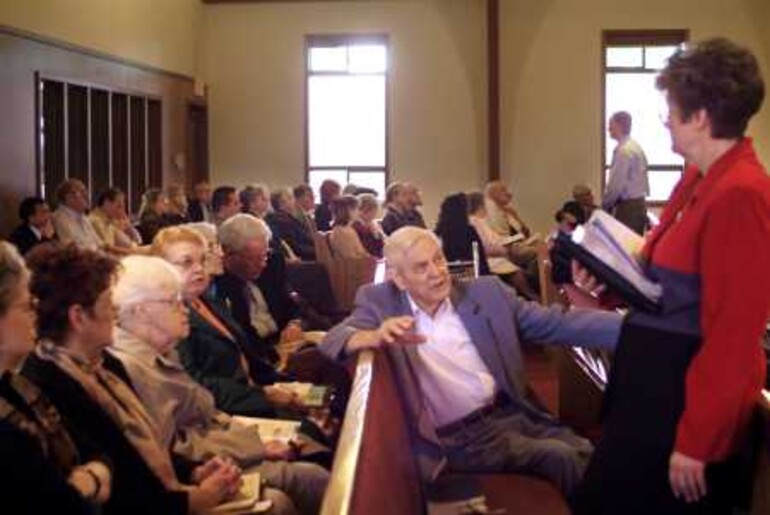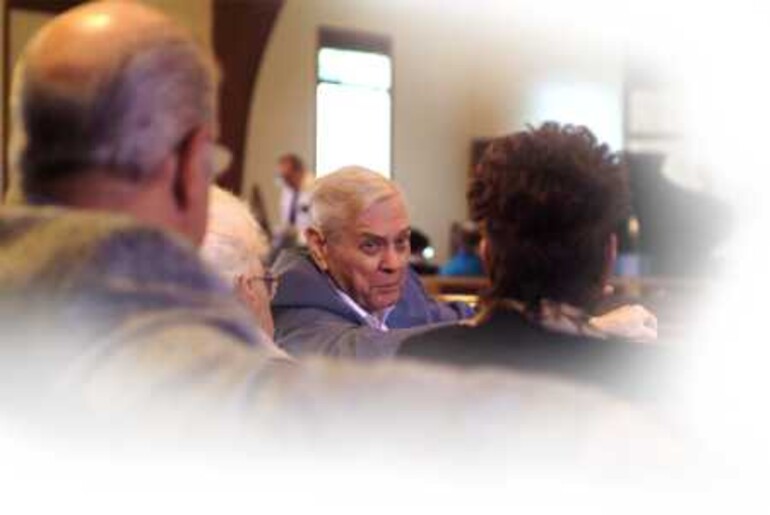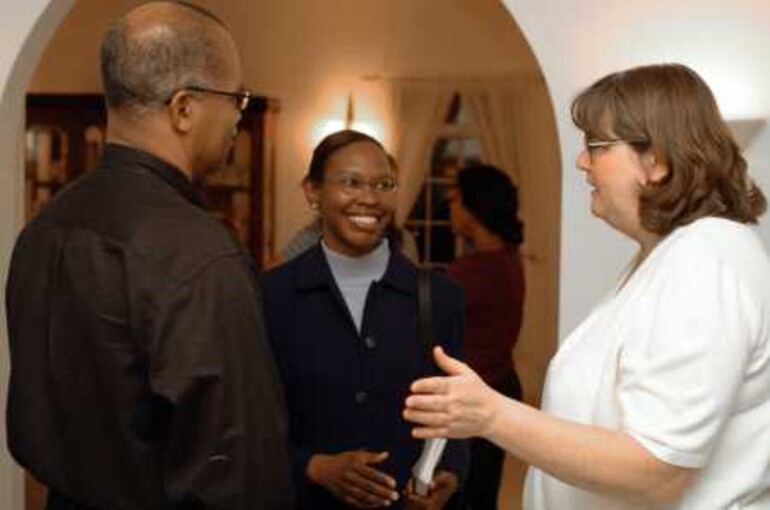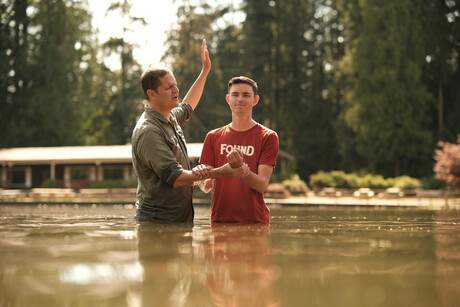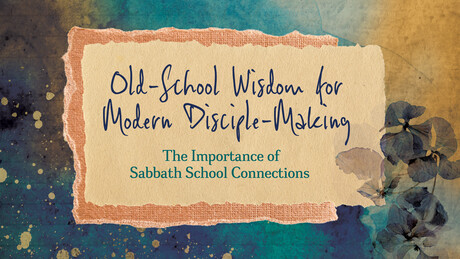Does your Sabbath School help you make connections with God, with other class members, with friends and neighbors and with the church?
Harvey Corwin, Oregon Conference adult Sabbath School director, states that Sabbath School attendance has dramatically declined in the last two decades. However, we are seeing revitalization. He also says that the key to a fulfilling and dynamic Sabbath School is an interactive lesson study that energizes action outreach, fellowship, Bible Study and mission.
Kelly Meyer teaches an hour-long adult Sabbath School class in the Orchards Church in Vancouver, Washington. “Sabbath School is where we can share what the Lord has shown us in our study throughout the week,” he says. “In Sabbath School we come together to talk about the things we have studied and also give life experiences that apply to the lesson. It is the real life experiences that help us to see God today, and through these experiences our faith is built.”
Listening to the thoughts and experiences of other members creates a bond of friendship that cements relationships to each other and to the church. Another component of the adult Sabbath School is outreach.
Several years ago Bud Griffitts’ Sabbath School class in the Hermiston, Oregon, church wanted to do something significant as a class. After several weeks of thoughtful discussion, they came up with the idea to hold Bible studies in Stanfield, about five miles to the south. The problem was that they could not immediately find anyone with whom to study.
So one day Bud said to his wife, Lloydeene, “If we are going to do anything, we’ve got to go knocking on doors.” Bud and Lloydeene went to Stanfield, found a block-long cul-de-sac and started knocking on doors. Amazingly they found six people interested in studying. Then the other Sabbath School class members went out and found another 14 people willing to study the Bible. Almost instantly they had 20 studies going.
When the studies were finished the people were given a choice to either meet as a group, take another series of studies on their own or they could take a break. Several decided that they would like to study as a group and arrangements were made to study on Sabbath mornings. The next problem was where to meet.
One of Bud’s friends, a janitor at Stanfield Elementary, talked to the principal and got permission for them to use one of the school’s modular classrooms. Bud found that on any given Sabbath there could be 15 people or there could be no one. It all depended on the day.
A little later, several of the Hermiston members who lived in Stanfield decided to join them for a prayer meeting, and the study time was changed from Sabbath morning to Wednesday night.
As word got out of the success of this little group in Stanfield, members in Hermiston urged Bud to start a church. “We had no intention of starting a church,” Bud said. “If a church was going to develop, we thought we ought to grow it rather than transplant one.”
Then Kevin Wilfley, the Hermiston pastor at the time, told Bud that the North Pacific Union Conference would support the effort to plant a new church. “So we thought, well, we might as well start a church,” he says. “So about three years ago, we joined together and rented a Presbyterian church.”
The average attendance is about 70 every Sabbath, and a number of Hermiston members are supporting the new church as are some recently baptized members, some not-yet-baptized people and others who are coming back to church after long absences. “There is quite a mixture of people who are coming,” Bud says. One of their challenges is providing a Sabbath School experience for the wide age range of children that attend.
The idea that a Sabbath School class can be the spark to plant a church is not limited to Stanfield. Sabbath School classes in Hayden and Clarkston have planted new churches in Idaho, as have classes in Yakima and Walla Walla in Washington. Small groups with a purpose can and do make a difference.
The leadership of the Kelso-Longview, Washington, church recognized that to meet the needs of its members there must be a variety of classes and activities. Not only does the church support traditional Sabbath School classes, it encourages so many different activities that it calls them Free Market Small Groups. New each quarter, these groups range from fellowship activities like a men’s volleyball evening and Sunday horseback riding to Bible study, marriage enrichment, Adventurers and Pathfinders for children, music groups, scrapbooking get-togethers and 20 other special interest activities.
These groups were not to be for nurture but for evangelism, says Dave Livermore, Kelso-Longview pastor. Every small group has non-members in it. The idea of these groups is to provide safe activities for members and friends alike.
He believes that the church’s best days are just ahead due to Christian fellowship. “The world has gotten so weird, it knows no boundaries,” Dave says. “People need to feel like they belong. The things we do as a church for fellowship are going to grow because they are safe, and people can come and feel that they belong. If they are a part of a small group, they become like family. They belong that day.”
Sabbath School classes are a wonderful vehicle for connecting—connecting to God, connecting to His church and connecting through friendship to His people whomever and wherever they may be.




